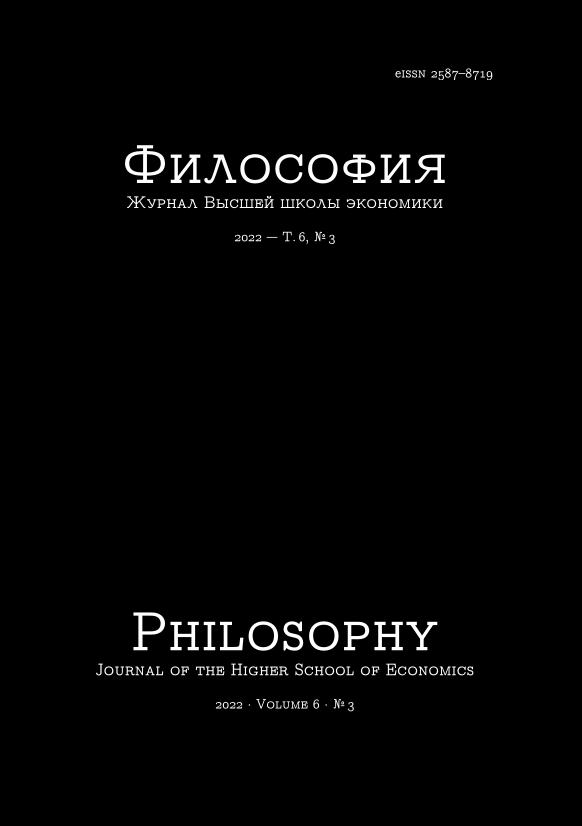Intoxication by the Woods as a Case of Captivation
Abstract
In the series of lectures Woods (Hyle): (Problem of Matter, History of the Concept, Living Matter in Ancient and Modern Biology), Vladimir Bibikhin, while reviewing the Aristotelian notion of matter, repeatedly mentions various intoxicants. However, the role that they play seems unclear. This article aims to explain the meaning and importance of intoxicants for interpreting the notion of matter. The article considers Bibikhin's interpretation of the Aristotelian notion of matter and juxtaposes it with other commentators of Aristotle (Vasileva T., Riker P., Chanyshev A., Chernyakov A.). Emphasis is placed on the interpretation of the indefinitiveness of matter since V. Bibikhin's position differs from P. Ricoeur's. After a preliminary explanation of the fundamental indeterminacy of matter, it is argued that the question “What matters?” is counterproductive. As an alternative, a phenomenological question is suggested: “In what relations with matter are we?”. To answer this question, we use Bibikhin's notion of captivation, the dictionary meaning of the word matter (woods), and the notion of intoxication. They allow us to explore the problems of one's escape from the metrical and moral coordinates, shattering the normative control of consciousness, eliminating norm and form notions, and returning to one's own (proper). A description of the state of captivation as a consequence of intoxication by woods allows us to demonstrate in what sense matter can be understood as indefinitive.
Downloads
Copyright (c) 2022 Philosophy. Journal of the Higher School of Economics

This work is licensed under a Creative Commons Attribution-NonCommercial 4.0 International License.






